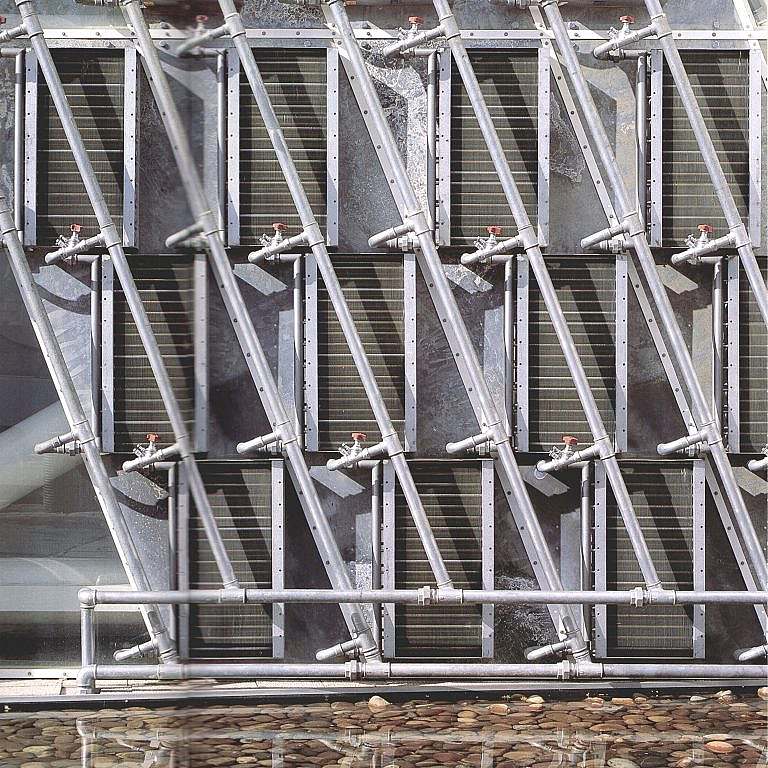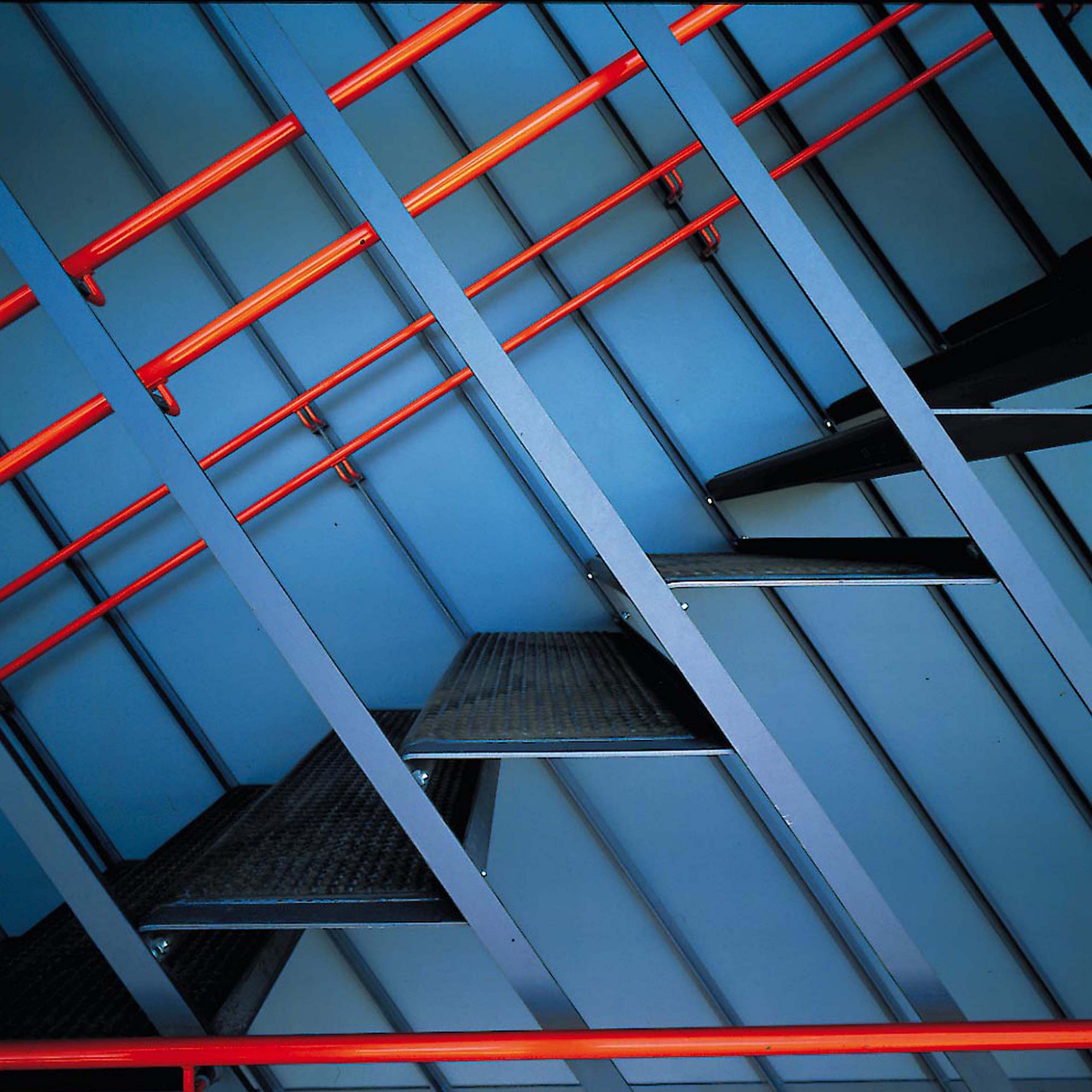The Danish pavilion put architect Jan Søndergaard on the map as one of the great Danish architects. To this day, the pavilion stands as a major work in the history of KHR and Danish architecture.
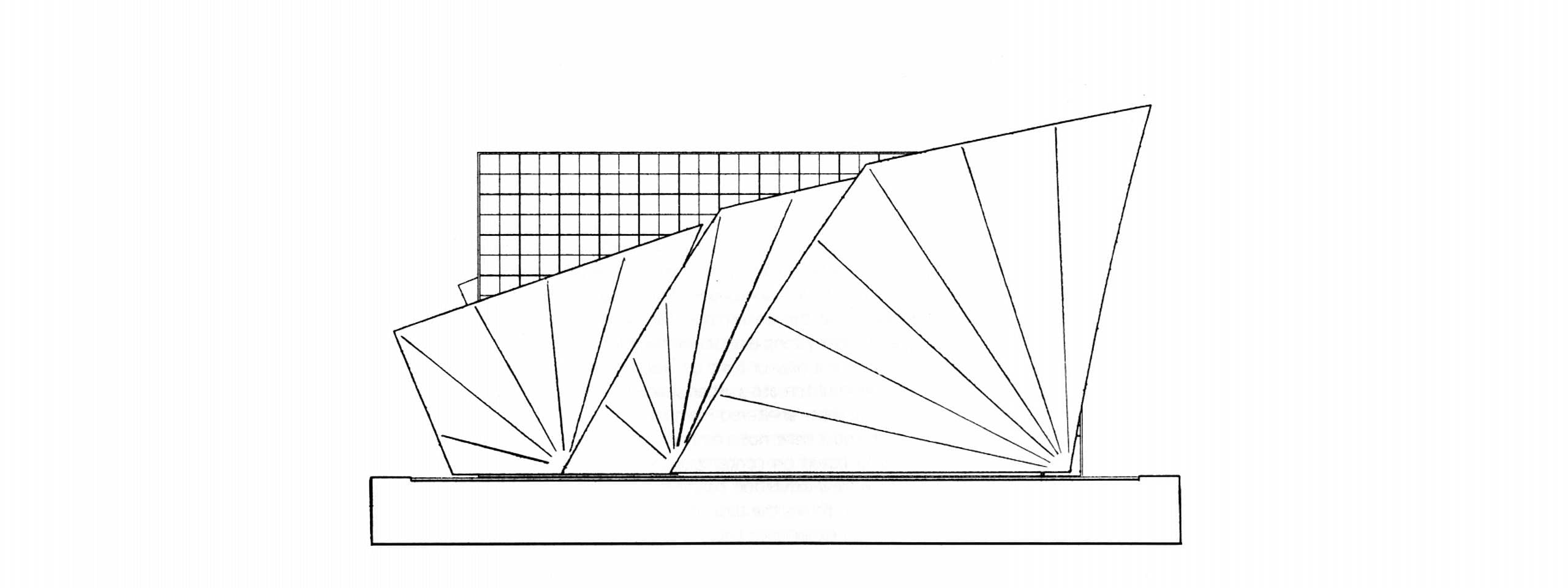
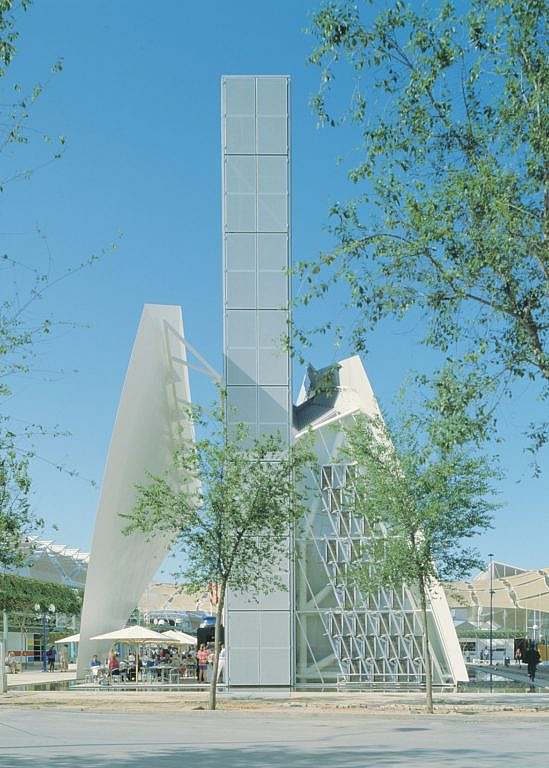
Danish cultural history
The main building components were 24 containers, which were prepared for transport, assembly as well as functional use through innovative construction techniques. The sails were constructed from glass fibre reinforced polyester, shaped and assembled from panel elements to create a plastic form. The sail construction formed a theatrical high space as a background for the entire exhibition, which consisted of an audiovisual history of Danish cultural history.
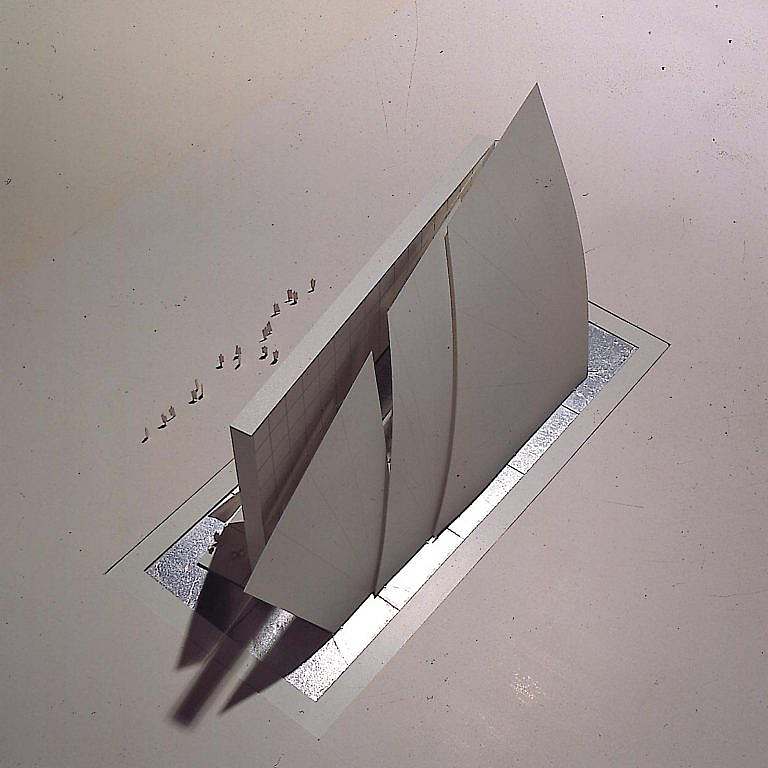
Dialogue and cooperation
The pavilion was created through an optimisation process that brought together prefabricated building components, alternative materials and innovative techniques to achieve both economic and construction benefits. All building components were thus produced on the basis of dialogue and collaboration with specialist suppliers, resulting in innovation, rethinking and disruption.
The sail, the mast and the water
As a modern symbol, the Danish pavilion at the 1992 World Fair in Seville clearly expresses Danish identity and Nordic tradition. The space of the pavilion arises from the juxtaposition of the stretched, vertical and horizontal surfaces, symbolised respectively by the sail, the mast and the water.
Jan Søndergaard, Professor and Architect MAA, KHR Architecture
Contact
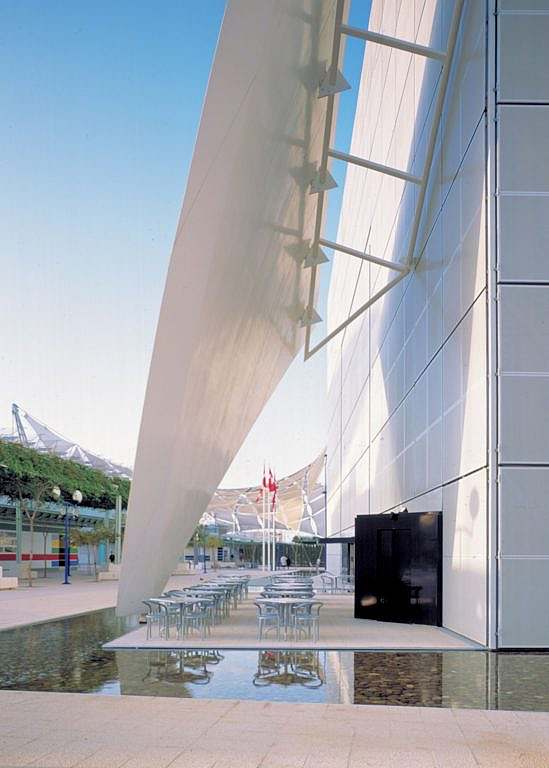
New life in Japan
The Danish pavilion was transported by ship to the exhibition in Seville and was originally planned for a period of six months, corresponding to the lifetime of the world exhibition. However, after the end of the EXPO, the pavilion was dismantled and transported again and then reassembled for a new life with a location in Tampa, Japan.
